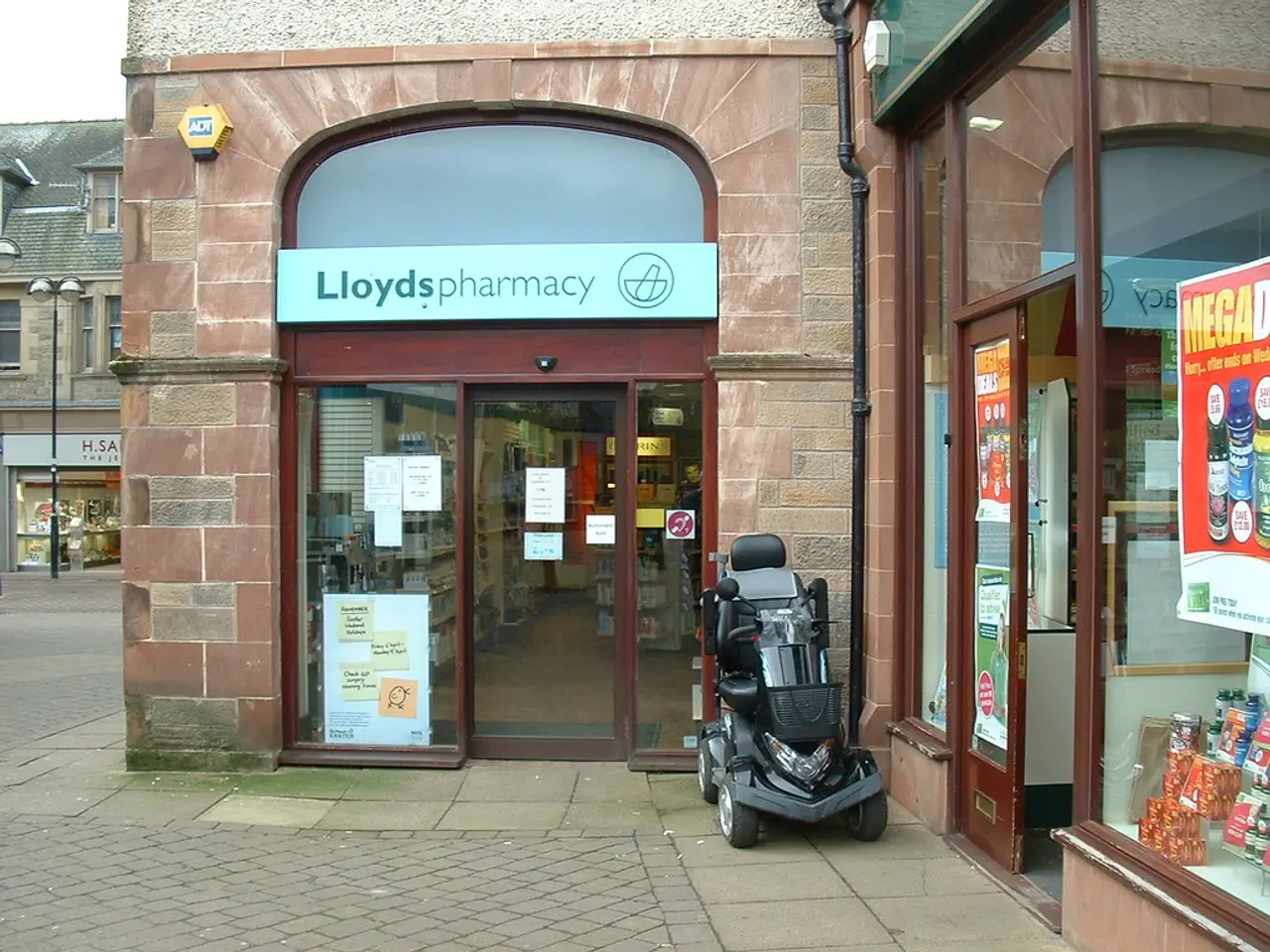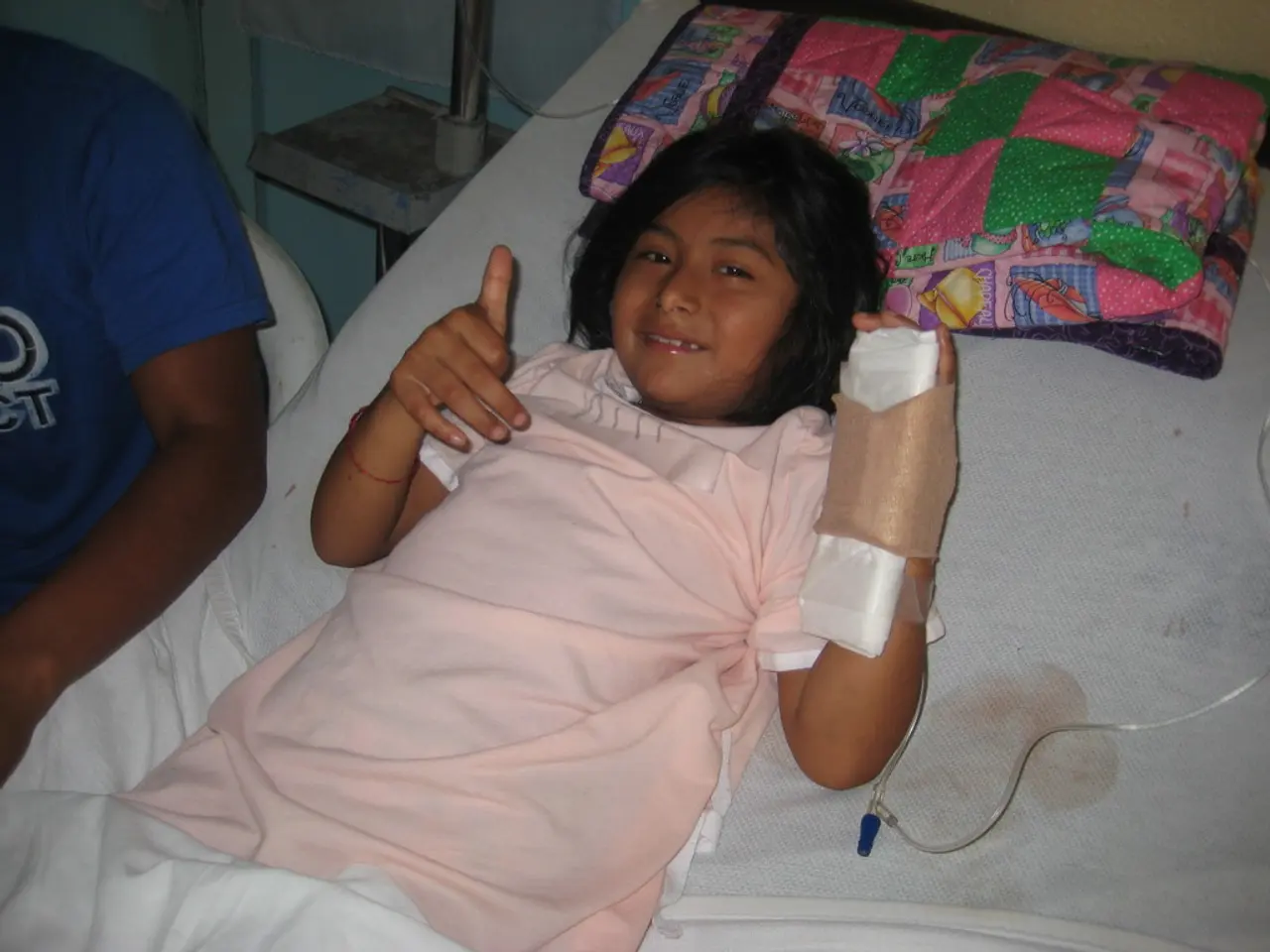UAE Healthcare Pioneers Historic Surgeries and Innovations, Embracing A Futuristic Healthcare Landscape in 2025
In the heart of the Middle East, the United Arab Emirates (UAE) is making waves in the healthcare sector, positioning itself as a global leader by 2025. This transformation is driven by strategic government initiatives, multisector collaboration, and cutting-edge technologies such as artificial intelligence (AI), genomics, and digital health.
Emirates Health Services recently announced plans for artificial heart transplantation and pancreatic cell transplantation, adding to the country's impressive roster of healthcare advancements. One of the key areas of focus is AI-powered precision medicine and preventive care. Abu Dhabi is pioneering AI-led drug discovery, precision medicine alliances, and life sciences innovation through the HELM initiative. This program integrates AI and advanced healthcare data analytics to handle complex clinical, genomic, and proteomic datasets, aiming to transition the healthcare model from reactive to preventive care.
The Department of Health – Abu Dhabi has also launched an AI-powered Population Health Intelligence Framework, the world's first learning health system designed for continuous prediction, prevention, and response to public health challenges using real-time analytics. This initiative is part of a broader strategy to build interoperable, agile infrastructure supporting digital health tools and sustainable healthcare transformation.
Genomics is another area of significant focus, particularly in oncology, rare genetic disorders, and metabolic diseases. Landmark partnerships among government entities, universities, and private players aim to advance precision genomics and innovative treatment pathways, highlighting the UAE’s leadership in biomedical research and regulatory reform to support healthcare innovation.
Innovative projects span across various healthcare sectors, with Emirates Health Services unveiling 13 pioneering projects and 19 innovative healthcare initiatives. These projects emphasize not only technological breakthroughs but also human-centered models targeting societal stability, happiness, and well-being.
The UAE's economic ambition is tightly entwined with its healthcare innovation agenda. Abu Dhabi projects its life sciences sector to contribute over AED 94 billion to GDP by 2045, generating 30,000+ jobs. This economic vision positions the UAE as a global hub for health technology startups and biomedical advancements.
Knowledge sharing and global collaboration are also crucial components of the UAE's healthcare strategy. Events like Abu Dhabi Global Health Week and the Healthcare Excellence Symposium foster international expertise exchange on advanced topics such as organ transplantation, cancer therapies, space medicine, and precision medicine, reinforcing the UAE’s role in shaping the future global health landscape.
In the realm of women's health, Corniche Hospital has made strides with a minimally invasive egg collection and freezing procedure. The UAE's healthcare sector has also achieved landmark procedures, such as the complex liver transplant supported by Al Jalila Foundation, and the world's first remotely performed robotic-assisted focal therapy for prostate cancer by Cleveland Clinic Abu Dhabi.
Moreover, Cleveland Clinic Abu Dhabi has carried out the UAE's first simultaneous robotic kidney transplant using a single robot and launched a BioButton-powered remote monitoring programme for cancer patients. A clinical trial in Abu Dhabi on StromaForte for knee osteoarthritis showed strong potential in cell-based therapy, while the Abu Dhabi Stem Cells Centre reported promising results for Type 1 diabetes treatment using umbilical cord-derived stem cells.
Looking ahead, Cleveland Clinic Abu Dhabi will bring heavy ion therapy, one of the most advanced cancer treatments, to the UAE. This commitment to personalized, tech-driven care is evident in initiatives like the BioButton programme, which underscores the UAE's ongoing reshaping of global healthcare with AI, robotics, and precision medicine at the forefront.
The United Arab Emirates (UAE) aspires to lead global healthcare by 2025, driven by government initiatives, multisector collaboration, and innovative technologies like artificial intelligence (AI), genomics, and digital health. Emirates Health Services plans for artificial heart and pancreatic cell transplantation, emphasizing AI-powered precision medicine and preventive care. Abu Dhabi is pioneering AI-led drug discovery and life sciences innovation.
The Department of Health – Abu Dhabi launched an AI-powered Population Health Intelligence Framework, aiming to transition the healthcare model from reactive to preventive care. The economic vision projects the life sciences sector to contribute over AED 94 billion to GDP by 2045, positioning the UAE as a global hub for health technology startups and biomedical advancements.
In oncology, rare genetic disorders, and metabolic diseases, the UAE focuses on precision genomics and innovative treatment pathways, particularly through landmark partnerships among government entities, universities, and private players. Innovative healthcare projects span across various sectors, targeting societal stability, happiness, and well-being.
Cleveland Clinic Abu Dhabi brings heavy ion therapy, one of the most advanced cancer treatments, to the UAE, committing to personalized, tech-driven care. Other initiatives, like the BioButton programme, demonstrate the UAE's ongoing reshaping of global healthcare with AI, robotics, and precision medicine at the forefront. In women's health, the UAE has achieved landmark procedures such as minimally invasive egg collection and freezing.
Cybersecurity, data, and cloud computing are also crucial components in the UAE's healthcare strategy, ensuring secure and efficient handling of sensitive medical data. Fitness and exercise play a vital role in overall health and wellness, with a focus on preventive care, physical fitness, and mental health.




